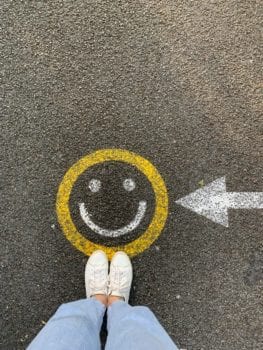
Give From Your Overflow … Not From Your Well! Tips On How To Help More Efficiently
Lifestyle May 05, 2021
Generosity has always been one of human nature’s best qualities. However, in a world where we all seem to be over-extended, Dr. Monica Vermani, C. Psych, Clinical Psychologist shares with us her key tips on how to help more efficiently.
Dr. Monica Vermani is a Clinical Psychologist specializing in treating trauma, stress and mood & anxiety disorders, and the founder of Start Living Corporate Wellness. She is a well-known speaker and author on mental health and wellness. Her upcoming book, A Deeper Wellness, is scheduled for publication in 2021. Please visit: www.drmonicavermani.com.
Dr. Vermani has recently launched an exciting online self-help program, A Deeper Wellness, delivering powerful mental health guidance, life skills, and knowledge that employees can access anywhere, anytime at www.
Sometimes we step up to lend a helping hand to a friend, family member or colleague in need. While helping others is kind, caring and selfless — and is generally a good thing — at times, our good intentions get the better of us, and lead to patterns of behaviour and situations where we find ourselves giving and helping too much. We over-extend, deplete and exhaust ourselves. Let’s look at the interplay between giving, taking and the importance of making sure we have the time, energy and mindset to care for our own needs.
In life, we all have responsibilities relating to work and family, and life-maintenance tasks, like taking care of our homes, pets, keeping our finances in order, shopping for and preparing food on a daily basis. Beyond the realm of these basic responsibilities lie our contributions to our community, and the many kindnesses and support we extend to friends and family members in need. While it is wonderful to be in a position to help others — especially in times of need — there may be times when we find that our good deeds leave us exhausted and drained of energy, with little time, and attention left to tend to our own needs. We need to learn to give to others from our overflow, not from our well!
Your Well
Your well contains your resources of time, energy, and attention and your material and intangible assets (like a second vehicle, surplus cash, valuable skills, abilities or expertise). Your ‘well’ includes everything you have put in place and require to care for your personal and professional needs and responsibilities. These resources are finite, and your well can run dry if you do not tend to and care for it.
Your Overflow
Your overflow is simply the time, energy and attention you have left to give after you have taken care of your life tasks and responsibilities. When your well of time, energy and attention is overflowing, it’s great to lend a helping hand.
When Helping Others Get Out Of Hand
Repeatedly helping others can result in unhealthy cycles of habitual behaviours that leave you drained and depleted. You might become caught up in an unhealthy cycle of overextending yourself to a family member who has relied on you in a time of crisis. You may have inadvertently become the person in your friend group who everyone turns to when they need a shoulder to cry on or someone to watch their child or support them through a career transition. Or you could find yourself unable to say no to any request to become involved in community activities and events.

Where Guilt Creeps In
There may be times when you feel guilty for wanting to relax after a long day rather than run errands for a family member or help a friend in need of a last-minute favour.
It’s important to pay attention to feelings of guilt because guilt is simply a sign. It’s a signal that there is a conflict around what you want versus what someone else around you wants or expects from you. When you want to do something, and no one complains about it or has other ideas about what you should be doing, it’s all good. There’s no guilt.
But, when someone comes along and wants something from you that conflicts with what you want, this is where the guilt comes in. Suddenly, you’re faced with a dilemma: ‘Do I please myself, or please the person who is placing expectations on me?’ Good question!
It’s one thing to choose to occasionally do something for someone rather than what you would prefer to be doing… but over time, overdoing for others comes at a high cost.
Over-doing For Others At Your Own Expense
While showing compassion and support for others is kind and caring, doing and over-doing for others can come at a great cost. When you neglect your own needs and responsibilities, you exhaust and deplete yourself. When you over-give from your overflow, you’re often sacrificing your ‘down’ leisure time, time spent doing what you love or doing nothing at all. Over time, over-extending yourself for others can become a habit that prevents you from living an authentic life and pursuing interests, relationships and activities that bring joy any meaning to your life.
Healthy Boundaries
Becoming aware of what you need to keep your well topped up, and when and where in your life you have residual time, energy and attention — that is to say your overflow — will help you set healthy boundaries with friends and family members who may have become reliant on your assistance or support. Learning to say no to a request for help also provides people in your life with the opportunity to develop other ways, means and avenues for taking care of their needs and becoming more self-reliant.

Smarter Self-Care
Giving from your overflow and keeping that well of time, energy and attention reserved for your own life tasks and responsibilities is simply smart self-care. Healthy boundaries help you integrate smarter self-care into your life, and open the door for you to begin to factor yourself into the equation of your life.
Dr. Vermani’s Tips: Factoring Yourself Into The Equation Of Your Life
Realize that your time, energy and attention are finite resources.
Recognize the difference between what you need to maintain your own life, and the time, energy and attention left for taking care of others’ needs.
Tune in to feelings of guilt, and start to identify the gaps between what others want from you and what you want for yourself.
Turn down requests for help that will drain your well.
Make room in your life for the things that restore your energy, enrich your life, and bring you joy.
Main Image Photo Credit: www.unsplash.com
Dr. Monica Vermani
Author
Dr. Monica Vermani is a Clinical Psychologist who specializes in treating trauma, stress, mood & anxiety disorders and is the founder of Start Living Corporate Wellness. Her book, A Deeper Wellness, is coming out in 2021. www.drmonicavermani.com













































































































